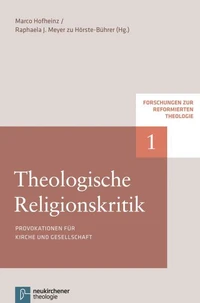Gift Exchange. Issues in Ecumenical Theology
Par :Formats :
Disponible dans votre compte client Decitre ou Furet du Nord dès validation de votre commande. Le format ePub est :
- Compatible avec une lecture sur My Vivlio (smartphone, tablette, ordinateur)
- Compatible avec une lecture sur liseuses Vivlio
- Pour les liseuses autres que Vivlio, vous devez utiliser le logiciel Adobe Digital Edition. Non compatible avec la lecture sur les liseuses Kindle, Remarkable et Sony
 , qui est-ce ?
, qui est-ce ?Notre partenaire de plateforme de lecture numérique où vous retrouverez l'ensemble de vos ebooks gratuitement
Pour en savoir plus sur nos ebooks, consultez notre aide en ligne ici
- Nombre de pages212
- FormatePub
- ISBN978-3-374-06308-6
- EAN9783374063086
- Date de parution01/12/2019
- Protection num.Digital Watermarking
- Taille767 Ko
- Infos supplémentairesepub
- ÉditeurEvangelische Verlagsanstalt
Résumé
Numerous scholars in Social Theory and Theology discuss the concept of gift in our days. The present book seeks to benefit from this for the sake of ecumenical hermeneutics: A gift is presented by one to another person, so the person receiving it at the same time is enabled to a better self. Successful ecumenical dialogues consist in giving and receiving gifts of this kind. The book gives an exposition of this concept and then takes a tour d'horizon through ecumenical dialogues the Lutheran Church and theology are intertwined with, Lutheran-Anglican deliberations on the office of ecclesial oversight and Lutheran-Baptist dialogues on the concept of baptism among them.
In the light of these findings the last chapter reflects on ecumenical hermeneutics in order to further improve its methods. [Gabentausch. Zur ökumenischen Hermeneutik] Der Band rezipiert Theorien der Gabe für die Fragen der ökumenischen Hermeneutik und schlägt ein identitätsbezogenes Konzept der Gabe vor: Eine gute Gabe ist nicht durch ihren finanziellen Wert bestimmt, sondern dadurch, dass sie erkennbar vom Geber kommt, zugleich aber den Empfänger besser ihn selbst sein lässt.
Gelingende ökumenische Verständigung erzeugt semantische Gaben dieser Art. Nach der Vorstellung des Konzepts folgen beispielhafte Diskussionen aus dem Dialog evangelisch-lutherischer Theologie mit dem Anglikanismus, der römisch-katholischen, der baptistischen und der orthodoxen Theologie. Das Schlusskapitel nutzt die Ergebnisse für Vorschläge zur Weiterentwicklung einer gabenbezogenen ökumenischen Hermeneutik.
In the light of these findings the last chapter reflects on ecumenical hermeneutics in order to further improve its methods. [Gabentausch. Zur ökumenischen Hermeneutik] Der Band rezipiert Theorien der Gabe für die Fragen der ökumenischen Hermeneutik und schlägt ein identitätsbezogenes Konzept der Gabe vor: Eine gute Gabe ist nicht durch ihren finanziellen Wert bestimmt, sondern dadurch, dass sie erkennbar vom Geber kommt, zugleich aber den Empfänger besser ihn selbst sein lässt.
Gelingende ökumenische Verständigung erzeugt semantische Gaben dieser Art. Nach der Vorstellung des Konzepts folgen beispielhafte Diskussionen aus dem Dialog evangelisch-lutherischer Theologie mit dem Anglikanismus, der römisch-katholischen, der baptistischen und der orthodoxen Theologie. Das Schlusskapitel nutzt die Ergebnisse für Vorschläge zur Weiterentwicklung einer gabenbezogenen ökumenischen Hermeneutik.
Numerous scholars in Social Theory and Theology discuss the concept of gift in our days. The present book seeks to benefit from this for the sake of ecumenical hermeneutics: A gift is presented by one to another person, so the person receiving it at the same time is enabled to a better self. Successful ecumenical dialogues consist in giving and receiving gifts of this kind. The book gives an exposition of this concept and then takes a tour d'horizon through ecumenical dialogues the Lutheran Church and theology are intertwined with, Lutheran-Anglican deliberations on the office of ecclesial oversight and Lutheran-Baptist dialogues on the concept of baptism among them.
In the light of these findings the last chapter reflects on ecumenical hermeneutics in order to further improve its methods. [Gabentausch. Zur ökumenischen Hermeneutik] Der Band rezipiert Theorien der Gabe für die Fragen der ökumenischen Hermeneutik und schlägt ein identitätsbezogenes Konzept der Gabe vor: Eine gute Gabe ist nicht durch ihren finanziellen Wert bestimmt, sondern dadurch, dass sie erkennbar vom Geber kommt, zugleich aber den Empfänger besser ihn selbst sein lässt.
Gelingende ökumenische Verständigung erzeugt semantische Gaben dieser Art. Nach der Vorstellung des Konzepts folgen beispielhafte Diskussionen aus dem Dialog evangelisch-lutherischer Theologie mit dem Anglikanismus, der römisch-katholischen, der baptistischen und der orthodoxen Theologie. Das Schlusskapitel nutzt die Ergebnisse für Vorschläge zur Weiterentwicklung einer gabenbezogenen ökumenischen Hermeneutik.
In the light of these findings the last chapter reflects on ecumenical hermeneutics in order to further improve its methods. [Gabentausch. Zur ökumenischen Hermeneutik] Der Band rezipiert Theorien der Gabe für die Fragen der ökumenischen Hermeneutik und schlägt ein identitätsbezogenes Konzept der Gabe vor: Eine gute Gabe ist nicht durch ihren finanziellen Wert bestimmt, sondern dadurch, dass sie erkennbar vom Geber kommt, zugleich aber den Empfänger besser ihn selbst sein lässt.
Gelingende ökumenische Verständigung erzeugt semantische Gaben dieser Art. Nach der Vorstellung des Konzepts folgen beispielhafte Diskussionen aus dem Dialog evangelisch-lutherischer Theologie mit dem Anglikanismus, der römisch-katholischen, der baptistischen und der orthodoxen Theologie. Das Schlusskapitel nutzt die Ergebnisse für Vorschläge zur Weiterentwicklung einer gabenbezogenen ökumenischen Hermeneutik.





